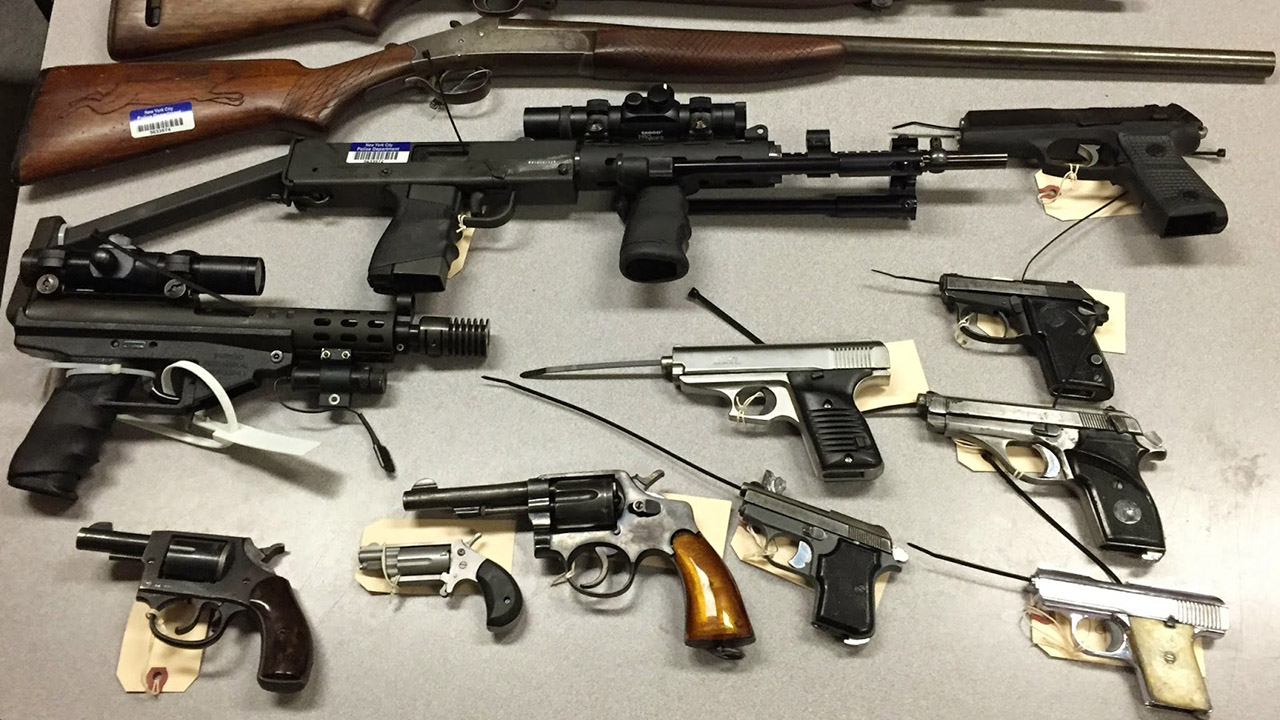In a month that has brought increased criticism of the NYPD, the New York Times has released a report that gives even more reason to be wary of police officers. The Times writes that a string of arrests for gun possession in Brooklyn in recent years “suggest a pattern of questionable police conduct and tactics” and have raised suspicions among two defense lawyers that police may be planting guns on alleged offenders.
In a handful of cases in East Flatbush’s 67th Precinct, something isn’t adding up. The cases go something like this:
The tip comes from a confidential informer: Someone has a gun. Ten or more minutes later, police officers find a man matching the informer’s detailed description at the reported location. A gun is discovered; an arrest is made.
But when these cases go to trial, rarely, if ever, does the confidential informer materialize, and the arresting officers have appeared “extremely evasive” or have presented testimonies so unlikely that they are deemed “incredible.” A judge threw out one case after saying that the officers “perjured themselves”:
Mr. Moore’s case has already been dismissed; a judge questioned the credibility of one of the officers, Detective Gregory Jean-Baptiste, saying he was “extremely evasive” on the witness stand.
Mr. Hooper spent a year in jail awaiting trial, eventually pleading guilty and agreeing to a sentence of time served after the judge in his case called the police version of events “incredible.”
In another example, Lt. Edward Babington, one of the four officers in Mr. Herring’s case, was involved in a federal gun case that was later dismissed and led to a $115,000 settlement. In that case, a federal judge said she believed that the “officers perjured themselves.”
Upon the Times’s inquiry into the case of Jeffrey Herring, brought forth by public defender Debora Silberman, prosecution promised to re-evaluate the case. According to Silberman, Herring and others are subject to foul play:
She and another defense lawyer, Scott Hechinger, have suggested in court papers that a group of officers invents criminal informers, and may be motivated to make false arrests to help satisfy department goals or quotas. They also question whether the police are collecting the $1,000 rewards offered to informers from Operation Gun Stop, especially in cases where the informers never materialize.
Deputy Chief Kim Y. Royster, a spokeswoman for the Police Department, said investigators from the Internal Affairs Bureau were looking at the officers’ conduct in these cases. “Any allegations that are made in regards to the credibility” of the officers “are taken very seriously,” she said, adding that programs like Gun Stop protected the anonymity of informers, and that there were layers of oversight “to ensure that the integrity of the program is solid.”
“I don’t know why I’m in this situation. I thought maybe when I cleaned up my life, I’d never be back,” Herring told the Times. “Why do these people want to prosecute me and have me convicted of this crime that I didn’t do? I just don’t understand it.
(Photo: NYPDNews)


